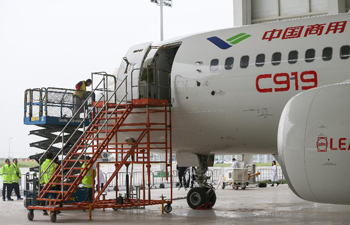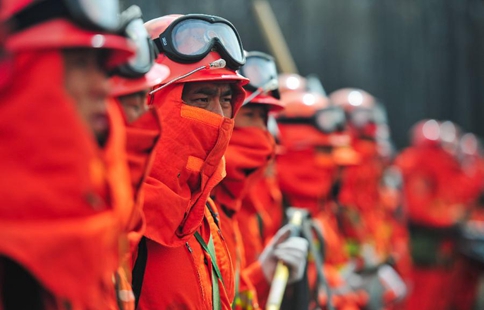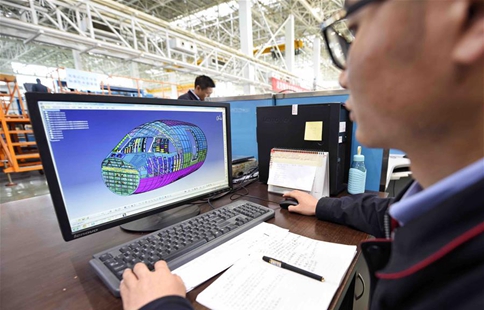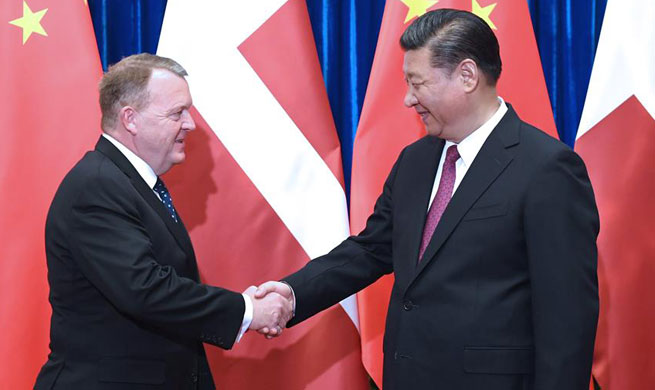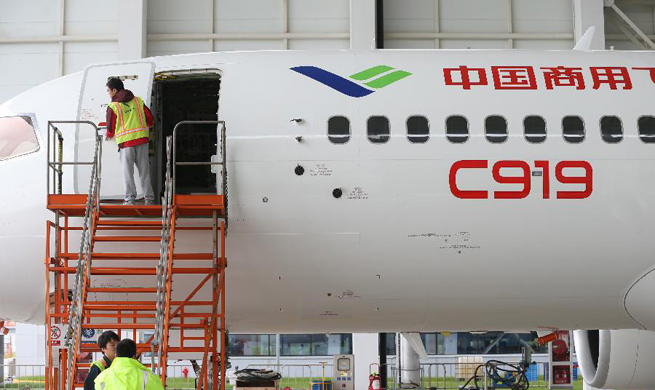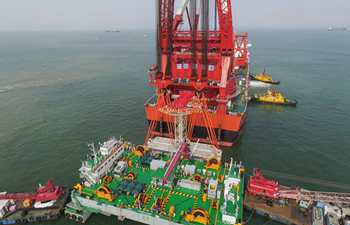by Yerbolat Uatkhanov
ASTANA, May 4 (Xinhua) -- The Kazakh government is interested in China-proposed the Belt and Road Initiative and connects its implementation with Kazakh national programs, Yerzhan Saltybayev, director of Kazakhstan's Institute of World Economy and Policy, has said.
The Kazak development plans are focused on transforming its raw material-oriented economy, boosting industrialization and diversifying trade with China, the Kazak economist told Xinhua in a recent interview.
"We know that the Chinese Initiative includes not only infrastructure projects, but also the creation of new industries in the countries where the project is being implemented. In general, we believe that the Initiative is absolutely viable, because it is based on the interests of the participating countries," said Saltybayev.
The initiative that China proposed in 2013 aims to build an infrastructure and trade network to seek common development and prosperity. The Silk Road Economic Belt and the 21st Century Maritime Silk Road are expected to connect peoples and countries in Asia, Africa and Europe along ancient trade routes.
Saltybayev believes that the Kazakhstan's national program agrees well with the Belt and Road Initiative.
"It is connected with the Belt and Road Initiative and aimed at sustainable development. Of course, we are interested in the success of this project, and Kazakhstan is making all necessary efforts. We believe in joint development and mutual benefits," said the Kazak expert.
"We focus on the diversification of trade between the two countries. We plan to quit a dependence on the export of raw materials," he said.
For Kazakhstan, the 51 projects it plans to jointly implement with China "will make the structure of the trade more stable. It will be much more profitable to export products at least primary or secondary stage of processing in addition to raw materials," Saltybayev added.
The expert also noted that Kazakhstan's infrastructure projects cover building roads, housing, and communication network, adding that "all these programs require a lot of resources ... produced in large quantities in China."
Saltybayev said that Kazakhstan has a huge potential to tap in the supply of environment-friendly and organic farm produce to the Chinese market. Among the favorable factors is that Kazakhstan and China are neighbors.
"It will be much easier to deliver products from our country. It will be much more efficient solution," he added.
On Kazakhstan's industrialization, Saltybayev said, "China is a priority partner in industrialization projects. Nowadays, China has reached the level that does not only produce products, but also creates new technologies, including environment-friendly technologies."
The Kazak expert said his country welcomes China's investment in both forms of capital and technology.
"We expect the inflow of not only Chinese capital investment, but also technological investment," he said.







